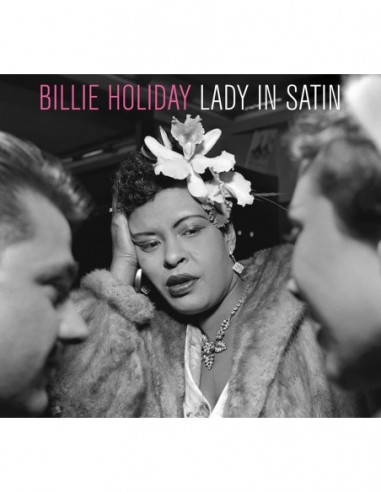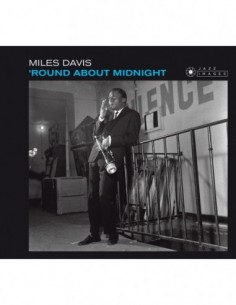Lady in Satin
Billie Holiday• THE JEAN-PIERRE LELOIR COLLECTION
• 3-PANEL DIGIPACK EDITION
• 4 1/2 STARS ALL MUSIC GUIDE
"Lady in Satin" (Columbia CS 8048) marked Billie Holiday’s last big hit and her second to last album ever. It represents something close to her swan song. Although some live recordings made after the Columbia LP exist, and she even made a second album with Ray Ellis for MGM, none of these documents were as enduring as Lady in Satin. In fact, Billie herself loved this LP, on which she fully impregnates the music with her soul, even though the effects of a lifetime of drug abuse and alcoholism are apparent in her voice. Most jazz fans now consider "Lady in Satin" to be Holiday’s last great effort. By early 1959 she had cirrhosis of the liver. She stopped drinking on doctor’s orders, but soon relapsed. On May 31, 1959, she was taken to Metropolitan Hospital in New York for treatment of liver and heart disease. She died on July 17, 1959 at the age of 44.
PERSONNEL:
- BILLIE HOLIDAY, vocals
- Ray Ellis and His Orchestra
New York, February 18-20, 1958.
(*) BONUS TRACKS: Billie Holiday, vocals [13-17}: Harry “Sweets” Edison (tp), Benny Carter (as), Jimmy Rowles (p), John Simmons (b), Larry Bunker (d). Los Angeles, August 23 & 25, 1955. [18]: Doc Cheatham (tp), Vic Dickenson (tb), Lester Young, Ben Webster, Coleman Hawkins (ts), Mal Waldron (p), Danny Barker (g), Jim Atlas (b), Jo Jones (d). New York, December 5, 1957.
TRACKS:
- 01 I’M A FOOL TO WANT YOU
- 02 FOR HEAVEN’S SAKE
- 03 YOU DON’T KNOW WHAT LOVE IS
- 04 I GET ALONG WITHOUT YOU VERY WELL
- 05 FOR ALL WE KNOW
- 06 VIOLETS FOR YOUR FURS
- 07 YOU’VE CHANGED
- 08 IT’S EASY TO REMEMBER
- 09 BUT BEAUTIFUL
- 10 GLAD TO BE UNHAPPY
- 11 I’LL BE AROUND
- 12 THE END OF A LOVE AFFAIR
- 13 PRELUDE TO A KISS (*)
- 14 A GHOST OF A CHANCE (*)
- 15 GONE WITH THE WIND (*)
- 16 COME RAIN OR COME SHINE (*)
- 17 WHAT’S NEW? (*)
- 18 FINE AND MELLOW (*)
- TOTAL TIME: 73:26 Min
- Format
- CD
- Discs
- 1
- Label code
- 24745
 Cookie preferences
Cookie preferences



















































